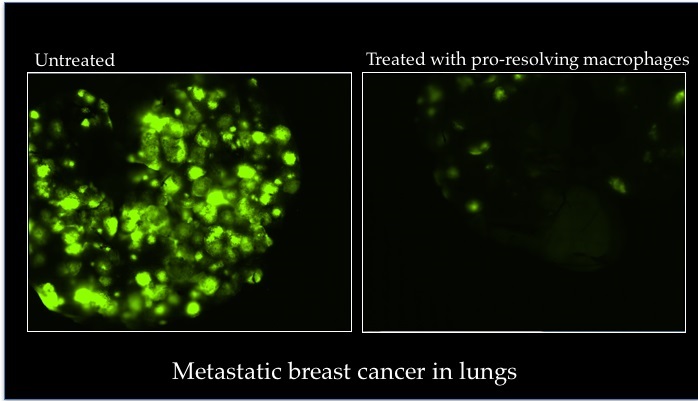Researchers: Dr. Dalit Barkan Dr. Amiram Ariel
Developing novel therapies for the prevention and treatment of recurrent metastatic breast cancer
Background
Distant recurrence, also known as metastasis or dissemination of the tumor cells, is the most serious type of breast cancer recurrence and is associated with significantly lower survival. Recent evidence indicates dissemination of tumor cells from the initial breast tumor to secondary organs may be an early event in the disease process. These disseminated tumor cells reside in the bone marrow, lymph nodes, and blood circulation of breast cancer patients and lie dormant (as non-dividing cells). They do not respond to chemotherapy or radiotherapy treatments that target actively dividing cells and cannot be detected with diagnostic imaging, lingering in the body as a ticking time bomb. Hence, the continuous presence of disseminated dormant tumor cells even after treatment may account in part for the latency and subsequent outgrowth of the cells 5-20 years after initial treatment.
Developing Novel Therapy for the Prevention and Treatment of Metastatic Breast Cancer
Dr. Dalit Barkan and Dr. Amiram Ariel from the Department of Human Biology at the University of Haifa have been making breakthrough advances in developing a novel approach to fight metastatic growth. Their work is founded on understanding the processes that promote reactivation of dormant cancer cells and their proliferation as a metastatic disease following a long period of inactivity.
Ultimately, Barkan and Ariel expect their work to validate and optimize novel, cutting edge therapeutics for metastatic cancer recurrence
Research Status
Dr. Barkan recently demonstrated that changes occurring in the tissue where the dormant tumor cells reside promotes their outgrowth. The tissue changes resemble scarred tissue (fibrotic-like tissue). Based on these findings Dr. Barkan and Dr. Ariel developed novel white blood cells (macrophages) that can prevent the formation of the fibrotic-like tissue and in turn inhibit the outgrowth of dormant tumor cells.
Animal trials have shown successful treatment in female mice, encouraging the team to continue developing novel therapies for prevention and treatment of metastatic breast cancer.
The novel technology platform holds the potential for discovery and development of therapies for the prevention and treatment of metastatic breast cancer.
Market potential [link to company page - anchor]


